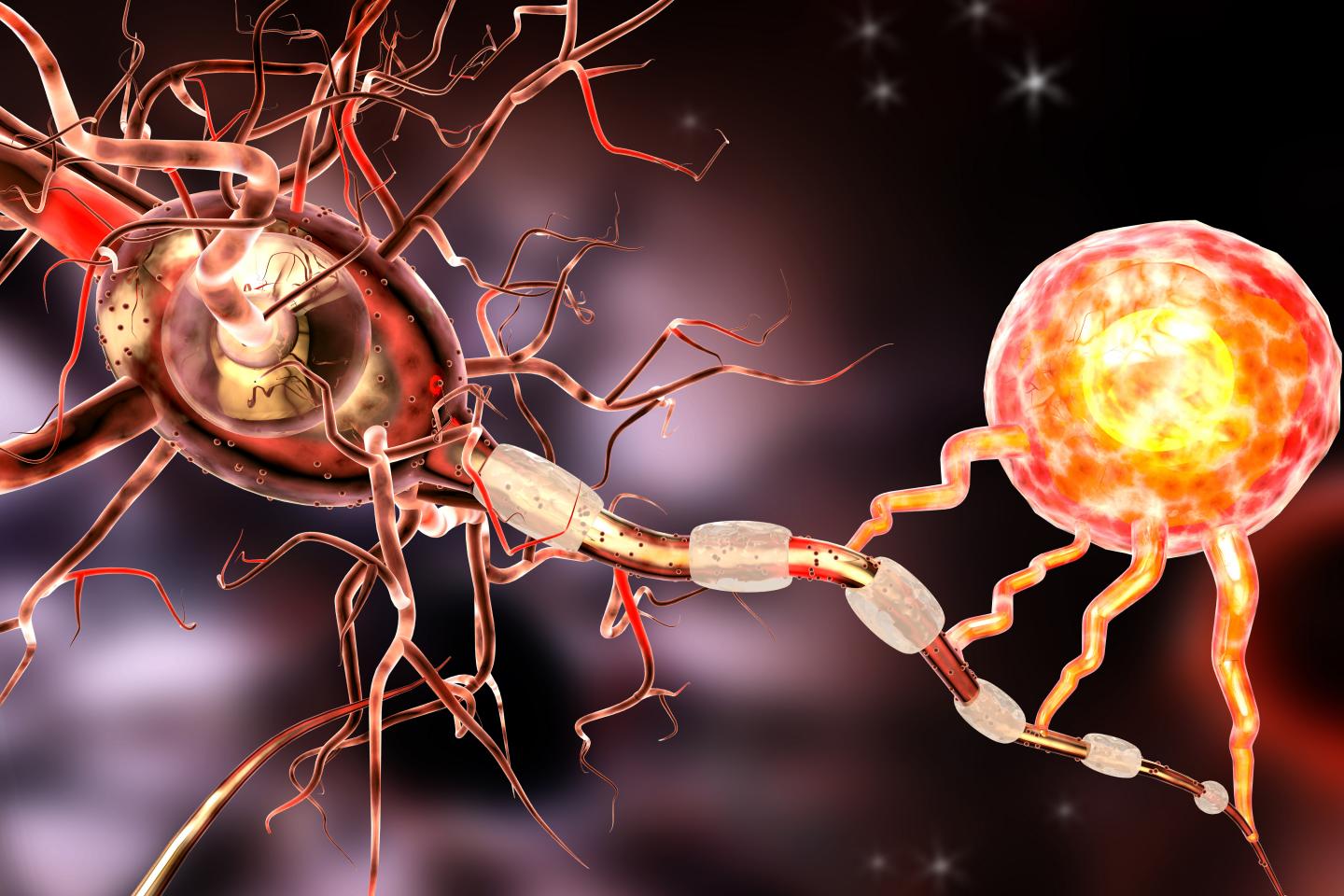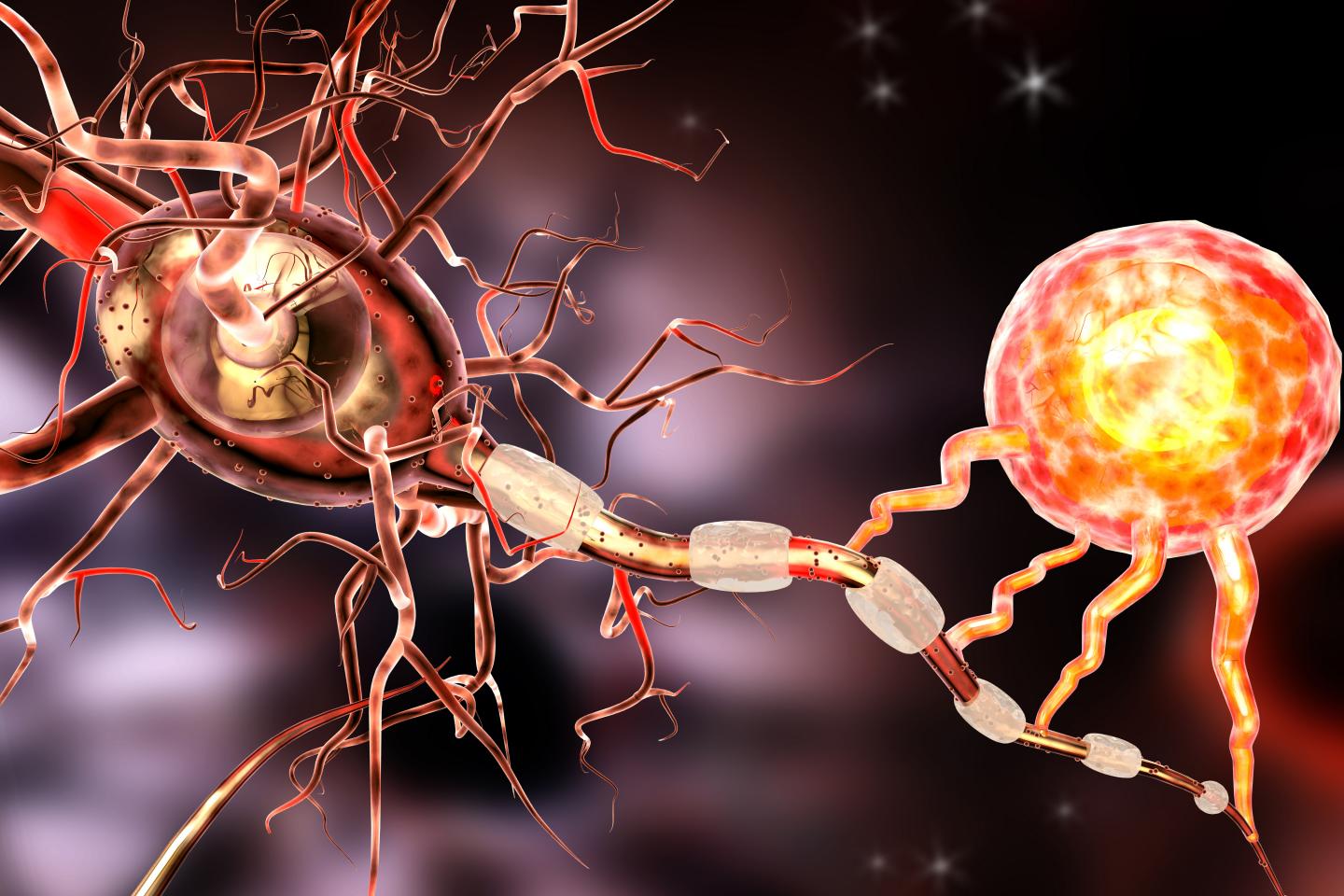
Credit: Shutterstock
There is new hope for the treatment of Alzheimer's and other neurological diseases following a ground-breaking discovery made by an Australian-Chinese research collaboration.
Researchers from the University of South Australia and the Third Military Medical University in China have discovered a signal pathway within cells, and also invented a potential drug that could stop degeneration and actually improve learning and memory in affected patients.
UniSA's Professor Xin-Fu Zhou and colleagues have been investigating tauopathies – which refers to a class of diseases caused by misfolding of the tau protein inside nerve cells that results in cell damage and eventually cell death.
These diseases include Alzheimer's, Parkinson's and Motor Neuron Disease, all of which presently have no cure.
Specifically, the team has looked into frontotemporal lobe degeneration (FTLD), a term representing a group of clinical syndromes related to cognitive impairment, behavioural abnormalities and speech disorders.
Professor Zhou says that previously it was unknown how the gene mutation was responsible for causing cell death or damage – referred to generally as neurodegeneration, and dementia in patients with FTLD and other motor neuron diseases. "Right now there is no treatment available at all," Prof Zhou says. "We have been investigating how these tauopathies (diseases) have some common pathology, including a particular tau protein that plays a critical role in nerve cell function."
Tau protein is a protein that stabilises microtubules and it is specifically abundant in neurons of the nervous system, but not in elsewhere.
"Our research found that in both the animal model and human brains, the signal of neurotrophins and receptors is abnormal in brains with FTLD," Prof Zhou says.
"We discovered an increase in the neurotrophin signalling pathway that is related to life and death of nerve cells, known as proNGF/p75, and then found blocking its functions was shown to reduce cell damage.
"Thus, in this paper we not only discovered a signaling pathway but also invented a potential drug for treatment of such diseases."
Given this strong evidence now available, the next stage is a clinical trial and South Australian biotech company Tiantai Medical Technology Pty Ltd has recently acquired a licence to further develop and commercialise this medical technology.
Professor Zhou says this industry involvement means there is an opportunity to translate the discovery into a treatment of Alzheimer's disease and other tauopathies.
###
The paper published in Molecular Psychiatry is a collaborative work between two laboratories led by Professor Xin-Fu Zhou, University of South Australia and Professor Yanjiang Wang, the Third Military Medical University.
Media Contact
Candy Gibson
[email protected]
61-883-020-961
http://www.unisa.edu.au/
Original Source
https://www.unisa.edu.au/Media-Centre/Releases/2018/Discovery-presents-treatment-hope-for-Alzheimers-and-other-neurodegenerative-diseases/#.W2vKzdIzaUk





